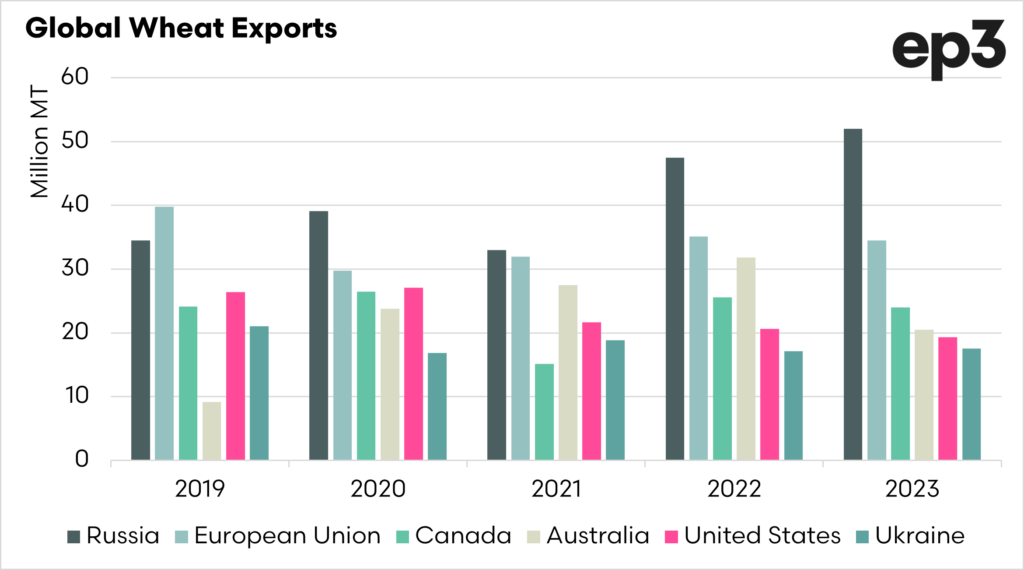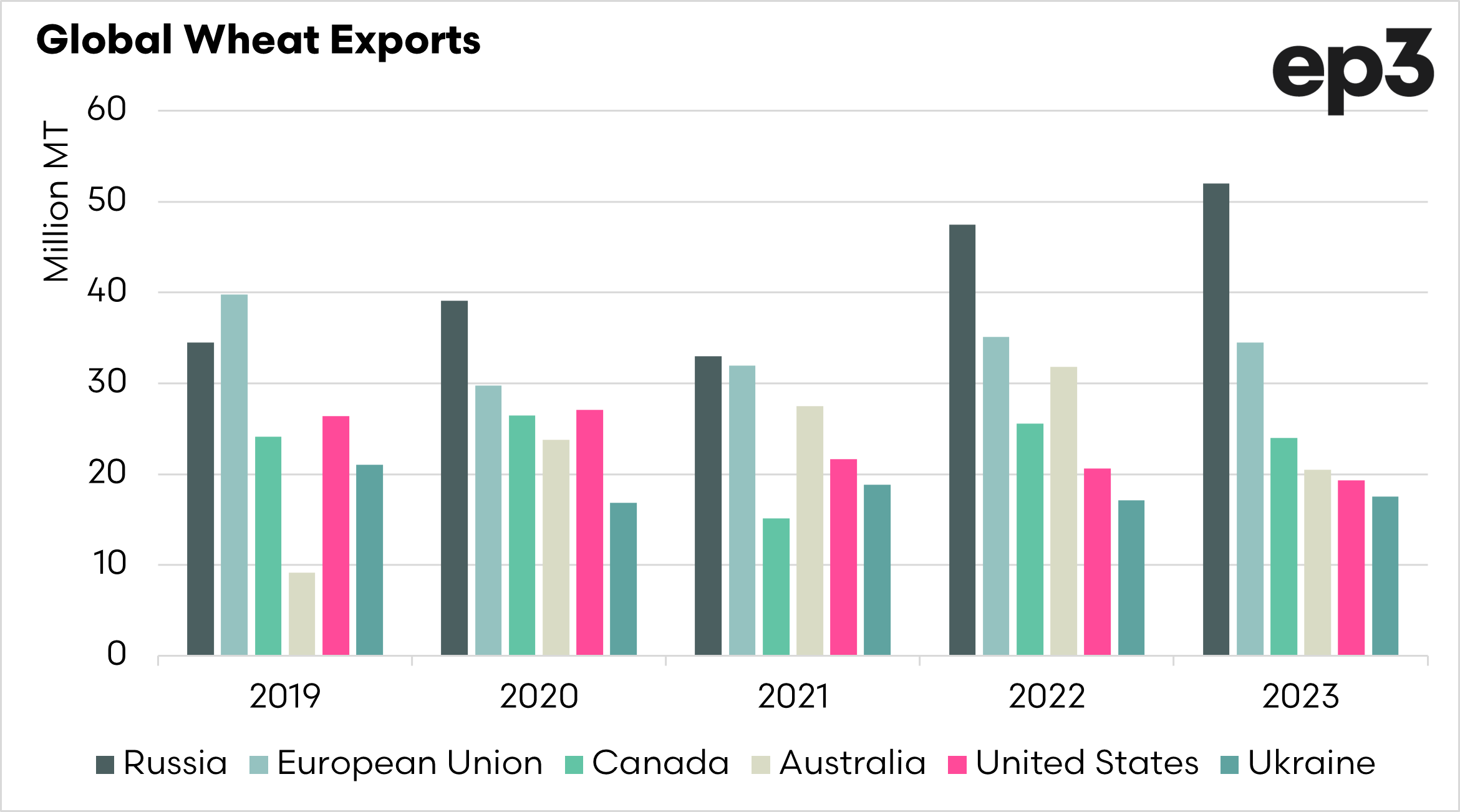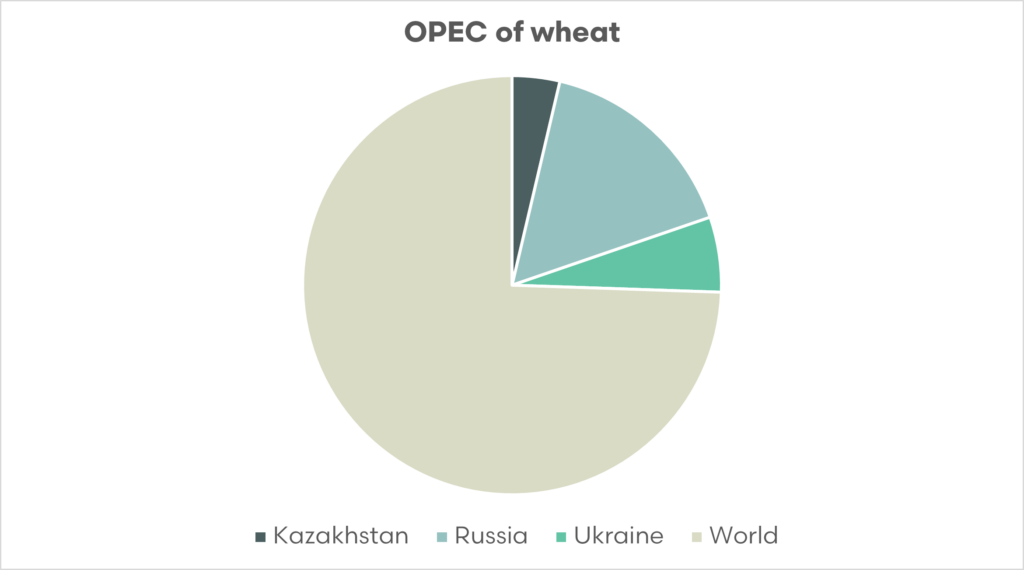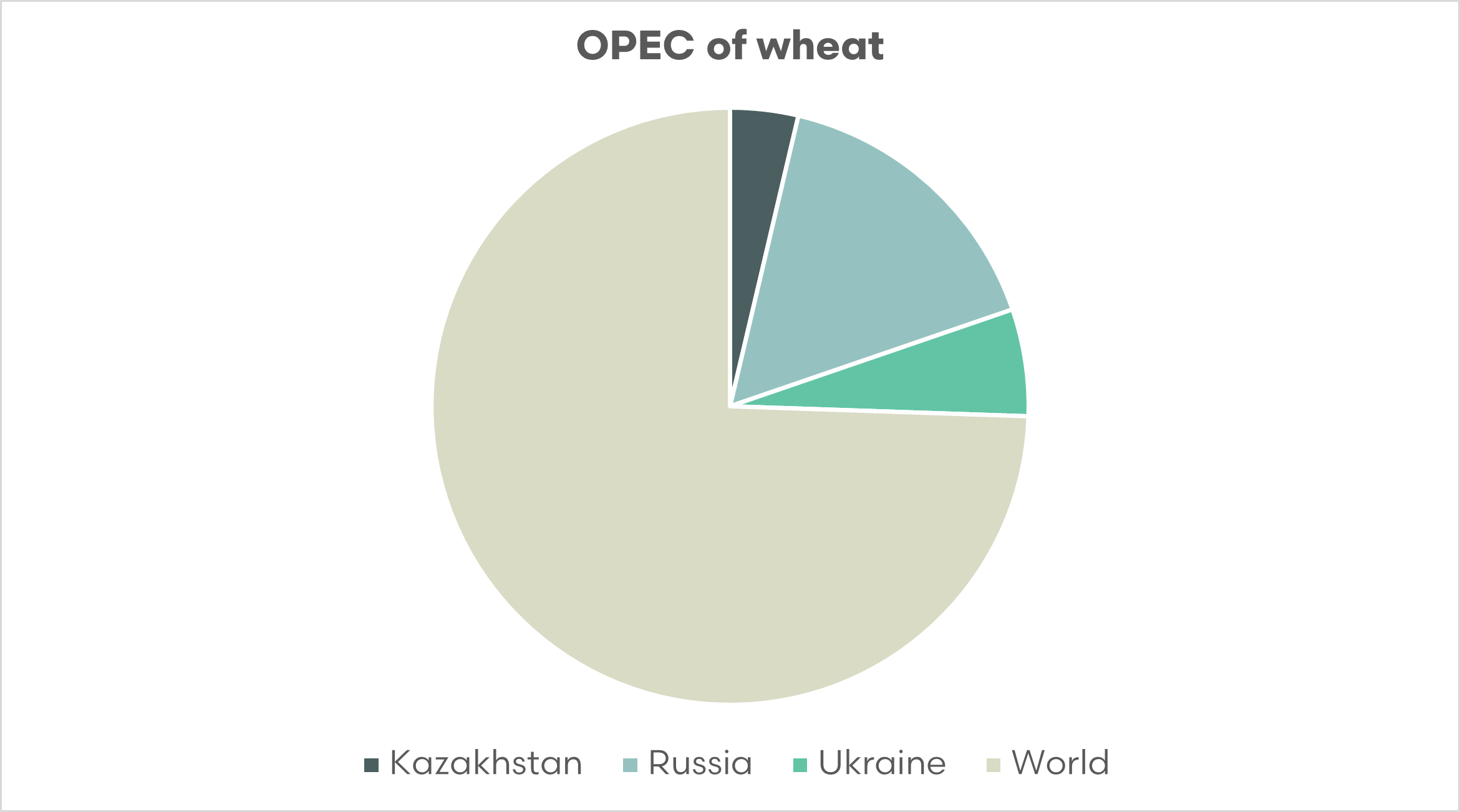Russia winning could lead to the OPEC of food?

Introduction
The Russian invasion of Ukraine commenced in February 2022. There was an expectation by many that the conflict wouldn’t last long and that a much larger Russian military would steamroll Ukraine.
The reality was very different. Ukraine has managed to hold off Russia for more than two years. This was largely due to support from the Western world through training and access to money and equipment. It is now getting tough for Ukraine, with support declining and counteroffensives being difficult.
Funding for Ukraine from the West fell during 2023, with support 90% lower in August/October than the prior year. At the end of April, the US House of Representatives approved A$61bn for Ukraine after months of resistance to continued funding.
This funding is a necessity for Ukraine’s ability to repel Russian forces. In the goodness of time, I expect that with elections coming up in the US and parts of Europe, we will see the funding slip, and the war with Ukraine will be over. What does that mean for the West, and what will it mean for agriculture? I thought I would have a brainstorm about the potential impact.
- The power of gas.
Putin has not been averse to using his resources as a weapon. In the past, Russia used to use natural gas as a coercive tool. In 2021, prior to the war, Russia provided 43.5% of Europe’s natural gas.
Turning off the taps was always a threat, and now Europe has almost moved away from reliance on Russia. This has occurred through reduced usage, imports from other origins, such as the USA and a move to alternative energy sources.
Europe has avoided the issue of reliance on Russian gas, but it was an expensive exercise.
- The power of food.
The world is reliant on wheat. Bread is a staple in many parts of the world and extremely important in the Middle East, which sources much of its wheat imports from Russia and Ukraine.
Russia is responsible for, on average, 19% of the world’s trade in wheat. Russia has grown to be the largest exporter in a short period of time. If Russia wins the war, and ends up in control of the totality of Ukraine, then they will be in direct control of 30% of the global wheat trade.
This is a volume that should make any import-reliant countries nervous.
- Taiwan will be next.
Taiwan has been a contentious issue since the Chinese Civil War, when Kuomintang lost to the communists and retreated to Taiwan, leading to a separate government. China has considered Taiwan to be part of its territory, and the ‘One China’ policy has always been to reunify.
If the West doesn’t support Ukraine to defend itself, then China will be encouraged by the lack of support and know that the West will likely not step in to defend Taiwan.
US officials have already commented on fears that China will take significant action between 2025 and 2027.
The US has pledged to support Taiwan, and Australia has been an ally of the USA; a conflict could fracture our economic ties with China. Will a newly elected Trump feel like supporting Taiwan?
What impact would this have on Australia?
- The increased presence of China in the Indo-Pacific region is potentially causing increased instability in the area.
- If we stick with our allies, we could lose access to many products and materials needed to produce our crops.
- China is our largest trading partner for many of our minerals and a few of our agricultural commodities, so a conflict in this region would cause disruptions to our trade flows.
- Taiwan has been a huge source of semiconductors to the world, and China controlling this would limit access to trusted electronics.
The conflict with Ukraine has huge ramifications for the world beyond its borders and could heavily impact the world’s trade in food. Supporting Ukraine may be in our long-term interest.




